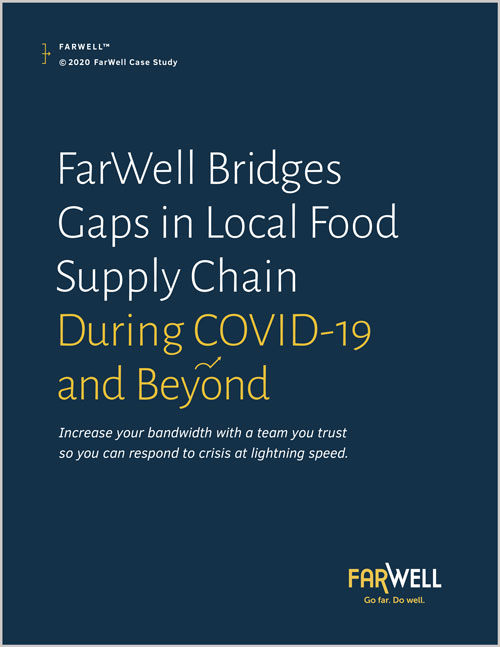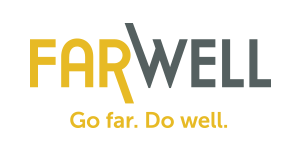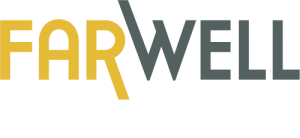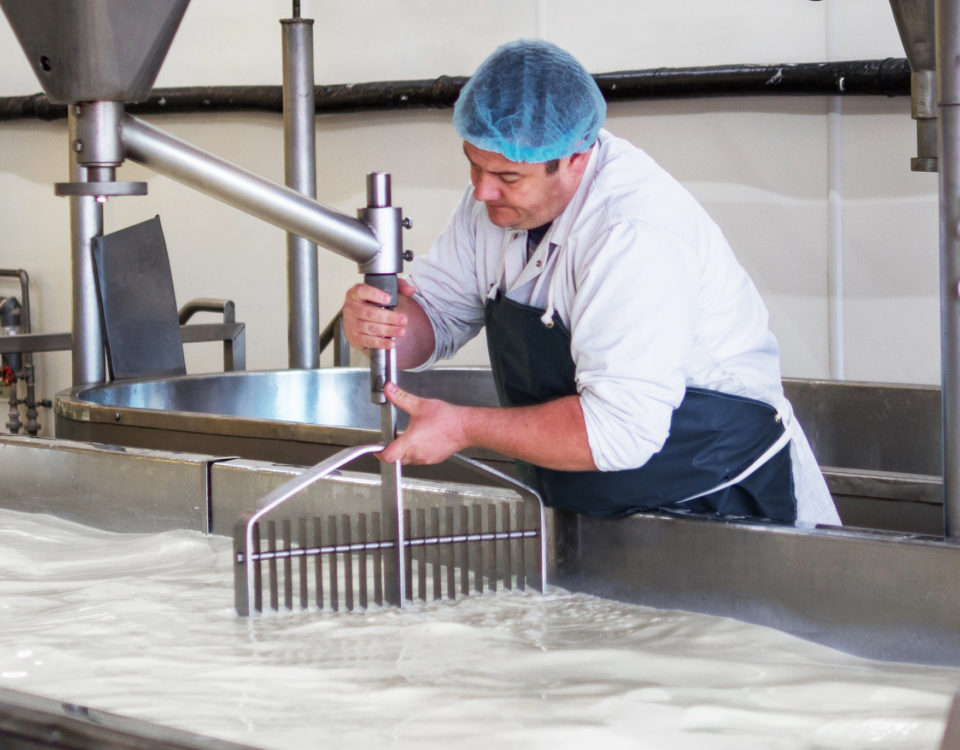Discover advisor articles and other FarWell resources.
Go far. Do well. Call (800) 987-2015
Local Food Bank Awarded $3M in Federal Funding for COVID-19 Relief Turns to FarWell for Program Optimization

In Business Small Business Awards 2020 Winner: FarWell
October 5, 2020
Finding the Value in CX and EX: Making a Business Case for “Experience” Strategies Webinar
October 29, 2020The 2020 coronavirus pandemic created unprecedented challenges world-wide, including a large increase in the number of people experiencing food insecurity issues.
As countries locked down and non-essential businesses closed for weeks or months, many people found themselves with no work, no income, and reliant on local resources like food pantries to sustain themselves and their families.
At the same time, the pandemic was wreaking havoc on global food supply chains, with food producers unable to get their products to processing plants, distribution facilities, and ultimately, to consumers.
It was a perfect storm of hugely increased demand combined with a greatly fractured supply chain.
$3M federal CARES Act grant issued to local food bank to help end hunger in southwestern Wisconsin county.
In April, a local food bank was notified that it had been awarded a $3M grant by the county in which it was located. This money was provided as part of the CARES Act to assist the Food Bank in its mission to end hunger in southwestern Wisconsin, specifically within the county awarding the grant.
The following is a summary of the Food Bank Case Study. Download the full Food Bank case study to learn more about the project story, details and results.
Food Bank Program Challenge
The grant contained a stipulation that as much of the food as possible was to be sourced from county food producers like produce farmers, dairy producers, and meat producers, who were experiencing crises of their own as the pandemic environment made it extremely difficult to find markets and manage logistics for their products.
Understanding their urgent need for help in managing the people and processes involved in effectively using this grant to further their mission of feeding local families, the Food Bank’s CEO called FarWell, an outcome-based advisory firm supporting organizations in solving complex challenges with unprecedented speed and agility.
The CEO realized if done right, the implemented model could sustain increased access and delivery of food supplies well beyond the pandemic and for not just the one county, but for their entire 16-county service area. From her work with a local non-profit FarWell had helped to create, which provides food deliveries from local food sources, she knew FarWell’s flexible approach to project leadership, process refinement and system optimization could help her organization plan, design and implement this critical initiative.
Within days of being selected, FarWell deployed a team of its Advisors to do a deep dive into the Food Bank’s current processes, so as to understand how best to improve essential food procurement and collaboration efforts to further the organization’s mission and maximize the use of the grant funding.

Right-Fit™ FarWell Food Bank Solution
FarWell devised a Right-Fit solution to address the program’s operational needs (procurement, logistics, receiving, assembly, storage, distribution) that would get the freshest food as fast as possible to those who needed it, along with handling the record-keeping and results-reporting requirements stipulated by the grant. Additionally, they began to build a network of local food producers and other organizations interested in helping support the program in some way.
Although FarWell had foundational knowledge of the food donation environment due to its relationship with the local non-profit they helped create, the team could by no means be considered an expert in this industry.
As the project kicked-off, the team applied its problem-solving agility as it continued learning about the industry while assessing potential risks and challenges. Operating on its flexible framework model, the team identified the resources, tools, and opportunities most prime for innovation and change.
The Food Bank would now need to venture into specialized purchasing. They would have to build relationships with new farmers with incongruous vendors and products at a challenging time to purchase. Meanwhile, donations were down from existing donors.
The first initiative of the team was to engage with food suppliers across the County and State. This included existing food bank relationships and sourcing new providers for partner agencies and their constituents. For the Food Bank to fulfill the CARES Act grant requirements, the team would be required to work closely with suppliers to understand their supply of food, logistics and storage options, and price.
The process as a whole would need to include vendor set-up, establishing procurement and delivery timelines, and coordinating new box assembly across multiple locations. The result of this work would create a new opportunity to provide high-quality, locally sourced dairy, meat and produce to which agencies would typically not have access. To accomplish its goal, the team reached out to food producers, placing orders and familiarizing themselves with local vendors and volunteers.
Parallel to procurement and assembly, the team also created documentation to meticulously manage the logistics and financials.
Volunteers were recruited and those that had available space provided remote receiving and assembly locations. Other organizations contributed by providing additional boxes to support the effort. Ingenuity and experience drove the team to look beyond traditional outlets to uncover innovative solutions to support the effort.

Food Bank Project Results
The program launched in May and through the first three months had procured almost 1.2 million pounds of food for county families.
Because of its success in each three-month period, the initial $3M grant has been extended twice. Four months into the now-eight-month engagement, the project has met the grant budget requirements each month largely in part to the newly developed tools and processes which continue to support progress. The forecasting and tracking systems developed by the team has made managing procurement needs highly scalable. This ensures optimal use or reallocation of funds, so every dollar is leveraged to its maximum potential.
Due to key process improvements made by the team, the Food Bank program has also achieved significant month-over-month efficiencies in the turnaround time between food orders, receipt, and delivery to local pantries, meaning recipients are getting fresher food, faster. Additionally, overall CARES Act program efficiencies were gained from procurement improvements, utilization of new boxes, and changes to produce and cooler box assembly and distribution.
Finally, due to the extensive network of county organizations identified, contacted, and recruited by the team, a significant portion of the food box assembly work has been achieved through volunteer resources. In fact, in each subsequent month since the volunteer assembly worker program began in May, these volunteers have donated over half of the program hours required for assembly.

Path Forward for the Food Bank Program
From building new partnerships and improving collaboration to streamlining production and increasing distribution, FarWell established new business process operations and managed change across all teams to create a more efficient and sustainable model to benefit the Food Bank now and into the future. The team is enthusiastic about the opportunity to further its support to the Food bBank, vendors, and volunteers responsible for this important work.
In response to its involvement on the initiative FarWell Co-founder and CEO Jason Potter said, “We are honored to have been invited to support the Food bBank as they work with unwavering focus to provide nutritious meals to every community member in need. We are proud of the effort put forth by our team to help strengthen the connectivity between all partners while uncovering new ways to work together so less people are needlessly impacted by hunger.”
The Food Bank CEO summarized her thoughts on the project and why the partnership with FarWell was important as follows:
“When you’re presented with an incredible opportunity to make a huge difference in your community, but to do so will require you to go well beyond your existing capacity in a high-stress time with very little notice, you need to have a team of seasoned experts at your side. We were fortunate to have FarWell at ours.
Their team of advisors were able to get up to speed on the project in an accelerated timeframe and were making significant progress on the project from the very beginning. Thanks to them, we were able to meet all the required milestones and deliver critical support to our community.”
– Food Bank CEO





